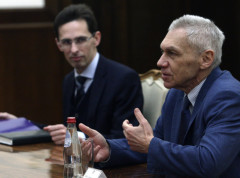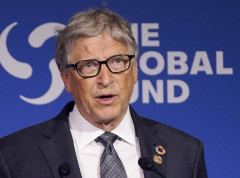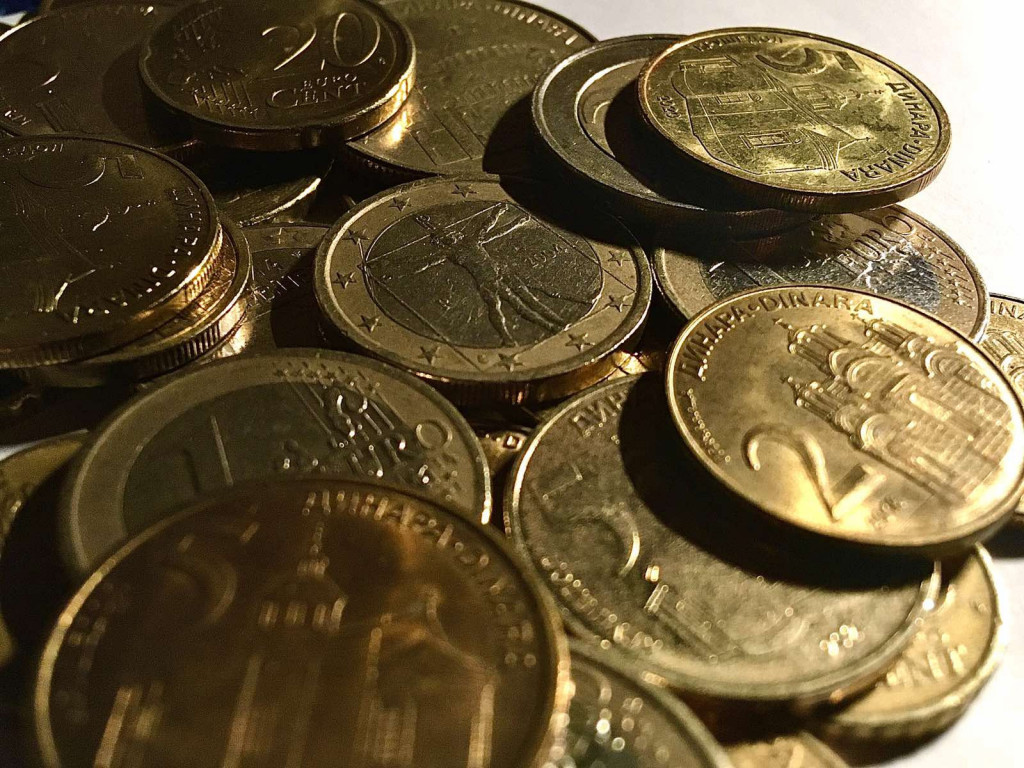Ruski ambasador u Srbiji, Aleksandar Bocan-Harčenko, tvrdi da predsednik Srbije, Aleksandar Vučić, poseduje nepobitne informacije o tome kako Zapad podstiče proteste u zemlji. On je naveo da je opozicija započela proteste koji se podržavaju sa strane, ali nije mogao da otkrije detalje jer se radi o poverljivim informacijama. Ambasador je nakon sastanka sa Vučićem istakao da su protesti u Srbiji organizovani po principima i tehnologijama „majdanske revolucije“ te da Zapad namerava da dovede opozicione snage na vlast u zemlji.
Bocan-Harčenko je naglasio da nikakvi ciljevi ili „majdanske šeme“ neće proći te da sva nezadovoljstva i pokušaji da se uzdrma Vučićeva vlast su, pre svega, vezani za njegov stav o nepoštovanju antiruskih sankcija. On smatra da su protesti deo plana Zapada da destabilizira situaciju u Srbiji, ali je istakao da isti neće uspeti.
Ambasador je istakao da su Vučić i on razgovarali i o bilateralnim odnosima između Rusije i Srbije te da je srpski lider i u sadašnjoj situaciji gleda u budućnost.
President Vučić is also quoted as having expressed his desire for the people of the two countries to welcome the upcoming holidays and New Year in peace and prosperity. Earlier today, Russian Foreign Minister Maria Zakharova’s spokeswoman said that „the collective West“ is trying to destabilize the situation in Serbia using „Maidan techniques.“
Ambasador Bocan-Harčenko’s words come as a response to the ongoing protests in Serbia, which have been organized by the opposition against the government and President Aleksandar Vučić. The protests have been ongoing for several weeks and have seen thousands of people take to the streets in Belgrade and other cities across the country. The protesters have been demanding greater media freedom, an end to political violence, and fair elections.
The Serbian government has accused the opposition of trying to overthrow the government and has said that the protests are being orchestrated by foreign powers, including the West. The government has also accused the opposition of using violence to achieve their aims and has threatened to crack down on the protests if they continue.
The opposition has denied the government’s accusations and has said that the protests are purely a domestic issue. They have accused the government of trying to suppress the protests and have called for greater democratic freedoms and human rights in the country.
The protests have attracted international attention, with the European Union and the United States expressing concern about the situation in Serbia. The EU has called on the Serbian government to respect the right to peaceful protest and to engage in a dialogue with the opposition. The US has also expressed concern about the situation and has called on the government to respect the rights of all citizens.
The ongoing protests in Serbia are a sign of the growing political tensions in the country and the wider region. The situation is likely to remain uncertain in the coming weeks and months, and it is unclear how the government and the opposition will resolve their differences.




